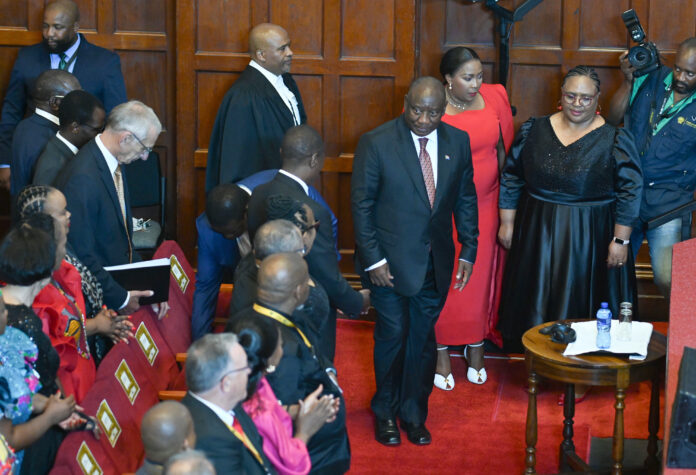The much-anticipated National Dialogue’s first convention kicked off today, August 15, at the University of South Africa’s ZK Matthews Great Hall in Pretoria.
President Cyril Ramaphosa will lead the government delegation and officially open the convention, an agenda-setting and roadmap process to chart a way forward for an all-inclusive and citizen-led dialogue.
WATCH:
The dialogue aims to be a long-term process that rebuilds trust, addresses the deepest challenges, and shapes a shared future. The convention will run until Saturday.
The Presidency said the convention will bring together about 1 000 delegates representing the diversity of the South African nation: government, political parties, civil society, business, labour, traditional leaders, religious leaders, cultural workers, sports organisations, women, youth, and community voices, among others.
“The National Dialogue will kick off with the first national convention and end with a second national convention to consolidate the outcomes through a people’s compact with commitments for citizens, sectors, government, business, labour, civil society, and families to heal and rebuild our nation,” reads a statement from the Presidency.
“The National Dialogue is aimed at re-energising community and citizen agency. The ward-based and citizen-initiated dialogues will develop community action plans and sectoral compacts for sustained, people-led development, mutual accountability, strengthening civil society, and deepening democracy.
Extensive sectoral engagements
Ramaphosa appointed the Eminent Persons Group, drawing from all sectors of society, to develop a plan to ensure the dialogue is inclusive, transparent, and truly reflective of the voices of all South Africans.
He also appointed an inter-ministerial committee under the chairship of Deputy President Paul Mashatile to coordinate the government’s contribution to the National Dialogue.
Following the convention, the dialogue process will unfold in phases through extensive sectoral engagements and community dialogues across rural and urban areas to ensure a participatory process and contribution by all citizens to directly shape the agenda and outcomes of the National Dialogue.
The National Dialogue will address critical challenges on:
• Poverty, inequality and hunger;
• Economic transformation and job creation;
• Social cohesion and nation building;
• Gender-based violence and safety;
• Governance, accountability, and particularly democracy,
• Land reform and food security.




